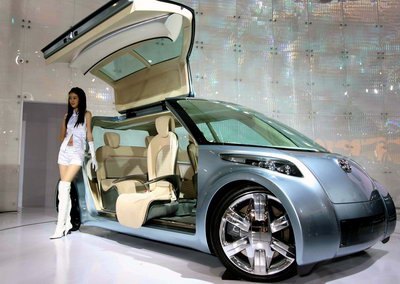More Fines Coming For Toyota?
The Detroit Free Press sure seems to think it’s “possible.” The paper reports that NHTSA’s “final notification” to Toyota includes a warning that it “would have faced a fine totaling $13.8 billion were it not for caps set by U.S. law on NHTSA penalties.” But then, that’s a bit like Toyota saying it would have manufactured its pedals to space shuttle specification if it didn’t cost so much money to do so. Six paragraphs into the piece, the Freep concedes that
NHTSA said it could issue another fine depending on whether it decides the problems with sticking pedals are technically two separate defects, based on the manufacturing changes made by Toyota.
The AP reports that documents obtained by NHTSA say Toyota acknowledges CTS-manufactured pedals “had two separate defects that may require two separate remedies.” But that’s not all, folks…
The agency has two other probes under way into Toyota’s recall of 5.4 million vehicles for floor mats that could trigger sudden acceleration and its general handling of sudden acceleration complaints; each of those probes could also generate additional fines.
Meanwhile, NHTSA’s investigation clearly wasn’t perfect. The NYT Wheels blog reports that Toyota Canada has refuted the DOT’s assessment that “[sticky pedal] repair procedures sent by Toyota to its Canadian operation as well as to distributors in 31 European countries last Sept. 29 showed that the company knew about the issue much earlier.” The DOT responded by clarifying that Toyota Canada was actually informed on October 7th, but Toyota Canada says that notice was in regards to floor mats, rather than sticky pedals. If true, this could bolster Toyota’s case that communication problems, rather than a willful coverup, caused delay to the US recall. Still, documents showing that Toyota knew about floor mat problems since February 2006 [via Bloomberg] could be a trigger for a second round of fines.
More by Edward Niedermeyer
Latest Car Reviews
Read moreLatest Product Reviews
Read moreRecent Comments
- 28-Cars-Later $12K? I needed a good laugh.
- EBFlex Wait...the feds are claiming that inflation was not FJBs fault 6 months prior to an election where he is massively losing in the polls in every single category?Eyebrow raised.
- MaintenanceCosts Most of the article after the blockquote is Posky laboring mightily to somehow blame this clearly anticompetitive and oligopolistic conduct on the big bad government.I look forward to some of the usual commenters explaining to us that, actually, the oil industry is a cuddly teddy bear and the real villain is people trying to sell us cars that don't use oil.
- Bd2 A modest price bump for one of the better if not the best vehicle in it's class. And it's a very good deal still considering the Front wheel drive competition over at Lexus to name one. These Genesis vehicles are more like BMWs of the 90s but with better styling.
- Dave M. What???? Big business taking advantage of us? I thought it was all Biden's fault!?!

































Comments
Join the conversation
No Risk No Recall – It all hinges on legal definitions and semantics of the words “unreasonable” and “risk” as stated in the law. From NHTSA “What is a safety defect” - United States Code for Motor Vehicle Safety (Title 49, Chapter 301) defines motor vehicle safety as “the performance of a motor vehicle or motor vehicle equipment in a way that protects the public against unreasonable risk of accidents occurring because of the design, construction, or performance of a motor vehicle, and against unreasonable risk of death or injury in an accident, and includes nonoperational safety of a motor vehicle.” The problem for the government is they have complaints, they have labratory testing and internal company memos from Toyota but they do not have a single real world example of a component that has caused an accident or injury. This is a huge legal hurdle for the government. A few years ago Transport Canada told me that Ford didn’t have to order a recall for broken coil springs that punctured tires on Windstars because the springs mainly failed when parked and this didn’t constitute undue risk or an immediate threat to safety. Today NHTSA lists (01I007000) a 98 Windstar as having a Safety Improvement Campaign – not a recall! If this is the standard Toyota needs to meet with a sticky pedal then they too can get the “Not a Recall” designation. The bottom line is that if NHTSA and TC can't find real world examples of a faulty part or system that has caused an accident then how could anyone reasonably infer there is a risk to public safety? Of the 100's of investigations conducted in the past few months alone, none have concluded anything but driver error. 10 minutes ago · Edit Post · Delete Post
It amazes me that the U.S. banks and Wall Street could trash the U.S. and world economy and instead of being fined, they got 21 trillion taxpayer dollars to 'get well,' but Toyota is told they 'could' have been fined 13bn dollars. So this means that if the U.S. banks had manufactured the defective accelerator assemblies, they would have been fined huge amounts of money, right? And perhaps some executives could have been jailed? As of now, a 'defective credit default swap' scheme that trashes the economy is seen as less damaging than a defective accelerator assembly. Truly astonishing, to me at least. Maybe I'm easily astonished.